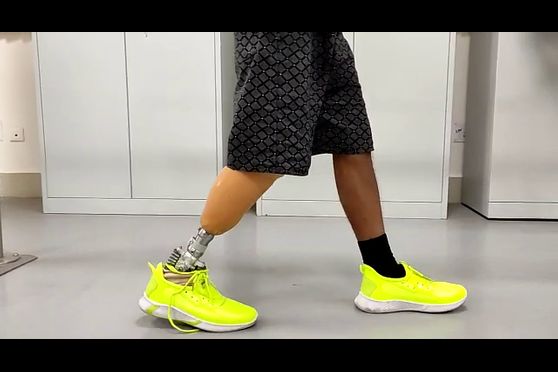IIT Guwahati develops affordable prosthetic leg with advanced features for Indians


Indian Institute of Technology (IIT) Guwahati researchers have developed a prosthetic leg specifically designed for Indian conditions. It is suitable for uneven terrain and supports Indian needs such as cross-legged sitting and deep squatting. It is also adjustable for different age groups and multiple stages of prosthesis use.
The cost of the prosthetic limb will be around Rs 25,000.
The research was funded by the ministry of education and the biotechnology department, Indian government. IIT Guwahati researchers collaborated with 151 Army Base Hospital, Guwahati, Tolaram Bafna Kamrup District Civil Hospital, Guwahati, Guwahati Neurological Research Centre (GNRC), North Guwahati, and North Eastern Indira Gandhi Regional Institute of Health and Medical Sciences (NEIGHRIMS), Shillong.
A team led by S. Kanagaraj of the mechanical engineering department at IIT Guwahati set out to tackle these issues. Prototypes of their models developed by this research team are currently undergoing trials.
Highlighting the key areas of the research, Kanagaraj said: “The knee joint developed by our team has a spring assisted deep squat mechanism, which helps to use Indian toilet system more comfortably; the knee rotating mechanism helps to have cross legged sitting; the locking mechanism helps to reduce the fear of falling of patients while walking in an unknown terrain; adjustable link length in a knee helps to have either more stability or easy flexing depending on age and requirement of the patients. Overall, the knee joint is designed to meet the Indian life style which other products fail to fulfil”.
Prosthesis development in India faces many challenges. Highly functional mobility for amputees requires devices with advanced features which are expansive and cannot be afforded by many.
Further, affordable prosthetics that are available in the market have many functional limitations. In addition, the Indian lifestyle and uneven terrain require prosthetics with specifications unique to India, which are not widely available in the market.